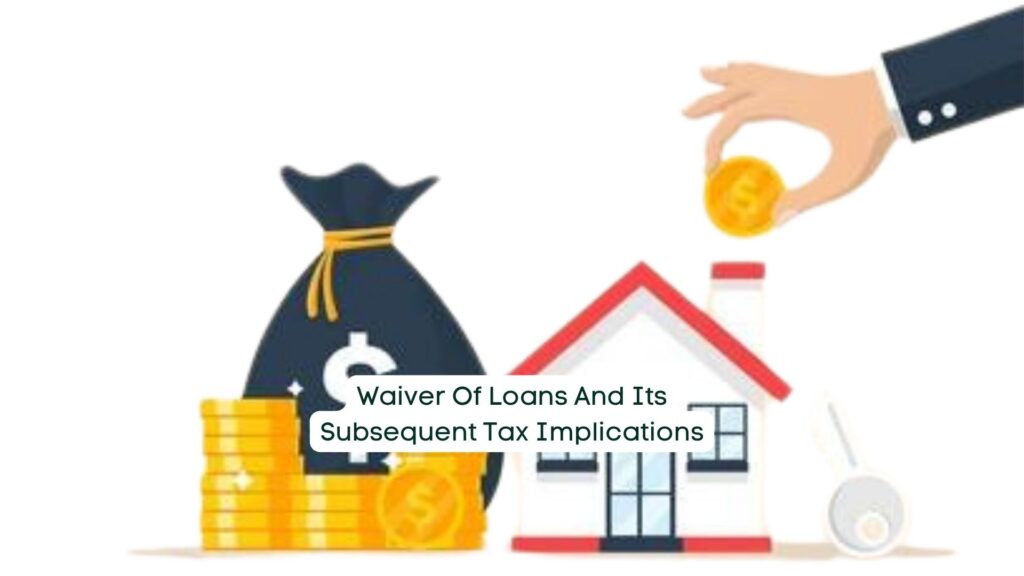
24 Feb Waiver of Loans and Its Subsequent Tax Implications

The waiver of a loan and its effects on tax obligations have long been a subject of interest within the realm of taxation. Tax regulations across various nations primarily aim to gather resources to support governmental initiatives and public welfare. In many prosperous countries, revenue generated from taxation serves as a significant financial foundation for government operations and economic development. At the individual level, small business owners or homeowners often acquire loans for personal or business purposes. However, the waiver of such loans can have varying implications depending on how it is acknowledged by the recipient and recognized by tax authorities.
When a homeowner’s loan for personal reasons is forgiven by the lender, it might not immediately trigger attention from tax authorities. Conversely, if a business extends a loan to its employees and later forgives the debt, it could be considered as part of the employee’s income and thus subject to taxation. This is because the business may record such waivers in its financial records.
Tax Implications under Income Tax Law
Under the Income Tax Act of 1961, specifically in Section 4 which outlines the charging provisions, personal income tax is levied on the “total income of the previous year.” The term ‘income’ is defined in Section 2(24) of the Act, encompassing most revenue receipts unless explicitly exempted. Typically, a loan taken does not constitute income. However, when a portion of the loan is waived by the creditor, it confers a benefit upon the borrower, raising questions about its taxability.
In this context, Sections 28(iv), 41(1), and 56(2)(x) of the Act are pertinent. These provisions are introduced to ensure that specific benefits received by the taxpayer are within the ambit of taxation. Given the complexity of these sections, it is essential to analyze each provision individually.
Taxability under Section 28(iv)
Section 28(iv) deals with the taxability of benefits or perquisites received by the taxpayer. There has been debate over whether this section covers cash benefits or only non-monetary benefits. The Gujarat High Court in the case of CIT v. Catalytic (P.) Ltd. [1981] 130 ITR 168 concluded that Section 28(iv) does not apply to cash benefits. This interpretation was further affirmed by the Supreme Court in Commissioner v. Mahindra and Mahindra Ltd. [2018], where it was clarified that Section 28(iv) only applies to benefits in kind, not cash benefits. As the waiver of a loan constitutes a cash receipt, it falls outside the purview of Section 28(iv).
Taxability of Waived-off Loans under Section 41(1)
Section 41(1) addresses the tax consequences of loans waived by lenders. If a lender waives a loan that was previously accounted for as a trading liability by the borrower, it is considered income taxable under the head ‘profits and gains of business or profession.’ The crucial factor here is whether the waived loan was considered a trading liability.
According to judicial precedents, if the waived loan increases the borrower’s profit, it is subject to taxation under Section 41(1). However, if the waiver does not result in a profit for the borrower, it may not be taxable under this provision.
Taxability under Section 56(2)(x)(a)
Section 56(2)(x)(a) imposes tax on any amount received exceeding Rs. 50,000 without consideration. While the applicability of this section to waived loans has not been extensively litigated, it is arguable that waived loans do not meet the criteria for taxation under this provision. This is because loans are typically not received without consideration, as interest expenses are incurred by the borrower.
Conclusion
In conclusion, the tax implications of waived loans are multifaceted and depend on various factors such as the nature of the loan, its treatment in accounting records, and its impact on the borrower’s financial position. While some waivers may be subject to taxation under specific provisions of the Income Tax Act, others may not meet the criteria for taxation. It is imperative to carefully evaluate the circumstances of each case to determine the taxability of waived loans accurately.


No Comments